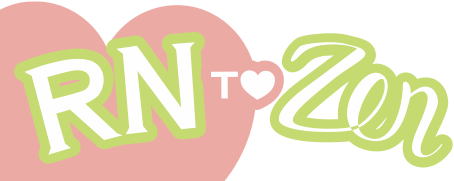Ways To Cope & Deal With Stress During COVID-19
The COVID-19 pandemic has brought unprecedented changes to our lives, leading to increased levels of anxiety, depression, and stress. The uncertainty about the future, financial stability, and health concerns due to the rapid spread of the virus have affected people globally. Despite these challenges, it’s crucial to confront this stress directly. The following sections will offer strategies to effectively cope with and manage stress during these challenging times.
As we continue to navigate the complexities of the COVID-19 era, it’s important to understand that constant high stress is not inevitable. There are ways to manage and mitigate stress, ensuring that both your physical health and mental well-being are preserved in the short and long term. Let’s explore some practical approaches to maintaining balance and well-being during this period.

The ongoing pandemic continues to create a backdrop of uncertainty. Even in countries under quarantine, infection rates have fluctuated. Despite the implementation of masks, social distancing, and the development of vaccines, the situation remains dynamic, with not everyone having equal access to vaccination and medical care.
The persistent uncertainty has led to widespread unemployment and financial struggles, amplifying stress levels. It’s crucial to address this stress because it not only weakens our immune system, making us more susceptible to illnesses, but also deteriorates our mental health. With the increase in stress and mental health challenges during this period, it’s more important than ever to find effective ways to manage stress and emerge from this crisis stronger.
Navigating Stress During COVID-19 with Effective Strategies
While the COVID-19 pandemic continues to pose challenges, there are viable strategies to effectively manage stress during these times. It’s essential to focus on methods that support both mental and physical well-being, irrespective of whether the stress originates from professional or personal aspects of life. Here are some key approaches to help reduce stress in the current climate.
Staying Connected with Loved Ones Virtually
- The Power of Social Interaction: One of the most effective ways to combat stress is through maintaining social connections. While physical meetups may be restricted, the importance of staying in touch with loved ones cannot be overstated, especially now.
- Sharing Worries and Fears: Opening up about your concerns with trusted individuals can significantly alleviate stress. It might be challenging to discuss personal issues, but having a support system can ease emotional and mental burdens.
- Combating Isolation and Loneliness: Feelings of isolation can exacerbate stress and lead to depression. To counter this, it’s vital to keep the lines of communication open.
- Leveraging Technology for Connection: Utilize digital tools like video calls and messaging to maintain strong social ties. Regularly scheduling video chats via platforms like FaceTime or Zoom and keeping in touch through calls or texts can significantly reduce feelings of loneliness.
- The Impact of Regular Communication: Consistent interaction with family and friends can create a sense of community and belonging, which is essential in these times of physical distancing.
In summary, while the pandemic has limited our physical interactions, it has not diminished the necessity for emotional and social support. Utilizing virtual means to stay connected with loved ones is a key strategy in managing and reducing stress during these unprecedented times.
Manage Your Diet:

Stress is impacted by all kinds of lifestyle choice. This certainly includes your diet! It’s tempting to eat cheap processed foods. Sugars and fats can make us feel good in the moment, however, these types of food raise blood pressure, increase weight, and can worsen the impact of stress.
While unhealthy foods might seem like a good option, on the contrary, you’ll want to stay away from these foods. Stress eating creates more stress in the long run. More importantly, eating healthy foods will help boost your health and lower stress. In addition, healthy eating habits (like nutrient-rich foods) can increase energy. If you must snack, try to keep it more natural.
Embracing Exercise and Movement
- Benefits Beyond the Short Term: Exercise is not only beneficial for immediate stress relief but also has long-term health advantages. Regular physical activity can improve mental health, increase resilience to stress, and boost physical fitness.
- Adapting to Current Limitations: With many unable to access gyms or finding it challenging to exercise with a mask, it’s essential to explore alternative ways to stay active.
- Home Workouts and Outdoor Activities: Initiating a home workout routine or embracing outdoor activities like walking or running can be excellent ways to incorporate movement into your daily life.
- Utilizing Online Resources: The internet, particularly platforms like YouTube, offers a wealth of home workout options. These range from high-intensity interval training (HIIT) to more relaxed yoga sessions, catering to various fitness levels and preferences.

By focusing on both diet and exercise, you can create a robust foundation for managing stress effectively during the COVID-19 pandemic. Embracing new forms of physical activity and maintaining a nutritious diet are key components in this endeavor.
While understanding the importance of exercise in stress management is one thing, implementing it consistently during these tumultuous times can be quite another. Here are some strategies to help make exercise a regular part of your routine:
Setting a Schedule
- Plan and Commit: Establishing a schedule for your workouts can be immensely helpful. It creates a sense of routine and commitment, which is especially important during periods of disruption like the COVID-19 pandemic.
- Flexibility and Adherence: Try to stick to your schedule as closely as possible, but also allow some flexibility. Being too rigid can lead to unnecessary stress if unexpected changes occur.
Keeping Exercise Engaging
- Diverse Workout Routines: To keep your exercise routine fresh and engaging, consider varying your activities. With a plethora of online resources available, you can easily change up your workouts to keep them new, challenging, and enjoyable.
- Exploring Different Options: Take advantage of the various home workout videos available online. From aerobic exercises and strength training to yoga and Pilates, there’s something for every interest and fitness level.
Understanding the Psychological Benefits of Exercise
- Natural Stress Relief: Exercise is a powerful tool for reducing stress. Physical activity triggers the release of endorphins, often known as ‘happy hormones’, which contribute to improved mood and stress relief.
- Brain Chemistry and Mental Health: Besides endorphins, exercise stimulates the release of other beneficial brain chemicals. These biochemical changes lead to improved mental health outcomes, making physical activity a key component in managing stress and maintaining mental well-being during the pandemic.
Setting a realistic exercise schedule and diversifying your workout routines can make maintaining physical activity more achievable and enjoyable during these challenging times. Remember, regular exercise not only benefits your physical health but is also a critical factor in managing stress and enhancing mental well-being.
Embracing the Outdoors for Mental Well-being
Amidst the constraints of quarantine and the shift to remote working, it’s vital to find ways to break the monotony and rejuvenate your mind. Stepping into nature, if possible, can be a significant relief.
The Benefits of Connecting with Nature
- Counteracting Cabin Fever: Prolonged time spent indoors, especially under quarantine conditions, can lead to feelings of restlessness and frustration. Nature offers a much-needed escape from these confines.
- Accessibility to Natural Spaces: If there’s a park, trail, or even a simple green space near your home, take advantage of it. While not everyone may have immediate access to these areas, for those who do, it’s a valuable opportunity to reconnect with the environment.
- Physical and Mental Relaxation: Activities like walking in the park or going for a bike ride not only provide physical exercise but also have a calming effect on the mind. The natural scenery, fresh air, and gentle movement can significantly reduce stress levels.
- Exploring New Activities: Being in nature might also present opportunities to engage in activities that you wouldn’t normally have the time or space for, such as bird watching, photography, or simply exploring new paths.
The Therapeutic Power of Nature
- Natural Stress Reliever: The tranquility of nature can act as a natural stress reliever. The sounds, sights, and smells of the outdoors have a soothing effect on the mind and body.
- Change of Scenery: Regularly stepping outside, even for short periods, can provide a much-needed change of scenery, breaking the monotony of being at home and enhancing your overall mood and outlook.
If circumstances allow, immersing yourself in nature can be a powerful way to combat the mental and emotional challenges of the COVID-19 pandemic. It provides not only a respite from the confines of home but also contributes to your overall mental and physical well-being.

Learn Stress Management Techniques:
Now is the perfect time to learn some effective stress management techniques. With extra time on your hands, you can learn how to reduce stress through your own efforts. There are many ways to reduce stress. For example, deep breathing, meditation, progressive muscle relaxation, stress journaling, and even yoga.
There are plenty of resources for these types of techniques. Utilize information to learn more about yourself and your capabilities. It can seem daunting or unfamiliar at first, but if you want to lower your stress, you need to be open to change. Get involved in Facebook groups, or watch YouTube videos about some of these techniques.
Balancing News Consumption for Stress Management
In the era of the COVID-19 pandemic, staying informed is crucial, but it’s equally important to manage your intake of news to prevent information overload and additional stress.
Moderating News Exposure
- Avoid Constant News Streaming: Continuously watching news about the pandemic can escalate anxiety and worry. It’s essential to strike a balance between being informed and overexposing yourself to potentially distressing information.
- Focus on Necessary Updates: Prioritize staying updated on critical information like vaccination updates, local and state press conferences, and guidelines to minimize exposure to the virus.
Implementing News Intake Strategies
- Set Limits: Allocate specific times for news consumption rather than letting it dominate your entire day. Limiting your exposure to the news cycle helps in maintaining a healthier mental state.
- Seek Reliable Sources: Ensure that the news you consume comes from reputable sources, providing accurate and helpful information rather than sensationalism.
- Engage in Relaxing Activities: Once you’re updated on the essentials, shift your focus to activities that help you relax and maintain a positive mindset. This can include hobbies, exercise, or spending time with loved ones.
The Impact of Controlled News Consumption
- Reduced Anxiety: By limiting your exposure to the news, you can significantly reduce feelings of anxiety and helplessness that often accompany constant news streaming.
- Improved Mental Well-being: Focusing on life beyond the pandemic, one day at a time, and engaging in uplifting activities can greatly enhance your overall mental health and resilience during these challenging times.
While it’s important to stay informed about the COVID-19 pandemic, it’s equally vital to limit your news intake to avoid unnecessary stress. By focusing on essential information and engaging in activities that promote relaxation and well-being, you can manage stress more effectively during this period.
Prioritizing Self-Care and Relaxation
Amidst the heightened challenges and stress brought on by the pandemic, carving out time for personal relaxation and self-care is more important than ever.
Importance of Allocating Personal Time
- Recognize Your Need for Rest: Acknowledge that everyone, including yourself, deserves a break, especially under the current circumstances. The increased demands of life during the pandemic shouldn’t mean sacrificing your personal downtime.
- Schedule Relaxation: Actively plan and schedule relaxation time into your weekly routine. This deliberate allocation of time for yourself is crucial for mental and emotional well-being.
Engaging in Enjoyable Activities
- Pursue Personal Interests: Take time to engage in activities that bring you joy and satisfaction. Whether it’s a hobby, a creative endeavor, or simply a relaxing pastime, make sure it’s something you truly enjoy.
- Exploring New Avenues: Use this time as an opportunity to explore new interests or activities that you might not have considered before. This could be an excellent chance to discover new aspects of yourself and what you enjoy.
The Benefits of Relaxation
- Stress Reduction: Allowing yourself time to unwind and engage in leisurely activities can significantly reduce stress levels, enhancing your overall quality of life.
- Self-Discovery and Growth: This period of relaxation can also be a journey of self-discovery, leading to personal growth and a deeper understanding of what makes you happy and fulfilled.
Making time for relaxation and self-care is essential, particularly during these taxing times. By prioritizing your well-being and exploring activities that bring you joy, you can maintain a healthier balance in life and manage stress more effectively during the pandemic.
Addressing Severe Stress through Professional Support
In the face of intense stress, particularly that which is exacerbated by the COVID-19 pandemic and work-related pressures, seeking professional assistance can be a critical step towards well-being.
Recognizing the Need for Help
- Acknowledging the Impact: It’s important to recognize when stress is significantly affecting your mental and physical health. Denial or delay in acknowledging the need for help can exacerbate the situation.
- Functionality as a Key Indicator: If stress is hindering your ability to function effectively in your day-to-day life, it’s a clear sign that intervention is needed.
Seeking Professional Assistance
- Timely Action is Crucial: Don’t wait until stress becomes unmanageable to seek help. Early intervention can lead to more effective management and recovery.
- Consulting Health Professionals: Making an appointment with a psychologist, therapist, or physician might seem daunting, but prioritizing your health is essential. Mental health professionals are equipped to help you navigate and cope with stress-related challenges.
- Overcoming Hesitation: It’s natural to feel apprehensive about reaching out for help, but remember that taking this step is a sign of strength, not weakness.
The Role of Professional Support
- Tailored Guidance and Support: A health professional can provide personalized strategies and support to help you deal with stress. They can offer coping mechanisms, therapeutic techniques, and sometimes medication if necessary.
- Comprehensive Care: Professional support often includes a holistic approach to managing stress, considering both psychological and physical aspects of well-being.
If COVID-19 related stress or workplace stress is severely impacting your life, don’t hesitate to seek professional help. Recognizing the need for assistance and taking proactive steps to get it are crucial for your mental and physical health. Remember, reaching out for support is a positive and constructive action towards regaining control over your well-being.
Final Thoughts
If the pressures of the pandemic are weighing heavily on you, consider giving these tips a try. They might provide some relief and a new perspective. We encourage you to share your experiences and coping strategies on our blog. Your insights could be invaluable to others navigating similar challenges during these times. Let’s support each other in finding ways to manage the stress of COVID-19.
References:


